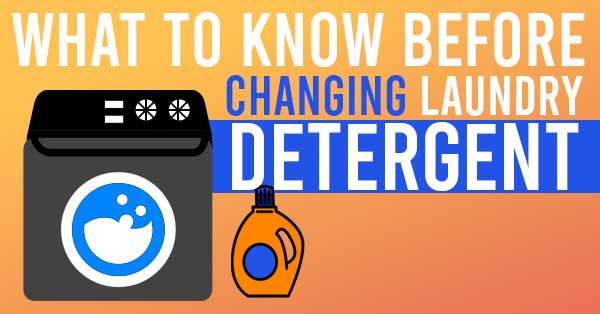The next time you are at the store shopping for laundry detergent you will likely be quick to grab your regular detergent. However, maybe you notice a sale or a coupon on another type of detergent? Even if it looks like a good deal it might not be worth trying a new detergent.
As you likely know, the heavy germ and grime fighting abilities of laundry detergent are been made possible by the many chemicals, dyes, fragrances, and other ingredients they use.
Laundry detergent sold in stores is tested to be safe before hitting store shelves. However, this does not mean it will not cause you issues. Anytime you introduce a new detergent you are at risk of discovering a new allergy or irritant in the form of a chemical that may not have been present in your old detergent.
Why does some laundry detergent irritate my skin?
If you have not changed the type of detergent you use in many years you may have not realized the sensitivity your skin can have towards certain ingredients.
Your skin can be irritated by the preservatives, enzymes, dyes, solvents, and many other components of laundry detergents. The fragrance is an entire issue in itself. Because many manufacturers use fragrances that they design in-house, it can be tough to know what ingredients are actually being used.
Because you wash your clothes, blankets, and more in your laundry and all of those fabrics touch your skin for extended periods of time. Thus, the detergent chemicals are then also in contact with your skin for an extended period of time.
As a result, individuals can experience itchiness, swelling, rashes, or blisters from a reaction.
Does it matter how much detergent I use?
The more detergent you use, the greater it will become impeded between fibers in your clothing. Be sure you are using no more than the recommended amount of detergent for your type of load.
What can I do to help protect myself?
If you want to try a different laundry detergent, it is safest to turn to a fragrance-free option. As mentioned previously, these fragrances are often a bit mysterious since they are made in-house and vary from manufacturer to manufacturer (even if they have the same fragrance name). Avoiding fragrances altogether is often the safest bet.
Double rinsing your clothes in the washing machine is another great strategy to mitigate the risk of irritation.
Lastly, consider washing your washing machine. You may think your washing machine is very clean because you’re running soap and water through it daily, but in reality, they are often quite dirty. They are a perfect breeding ground for bacteria.
The common strategy for cleaning your wash machine involves running a hot water cycle with baking soda and vinegar in the machine.


